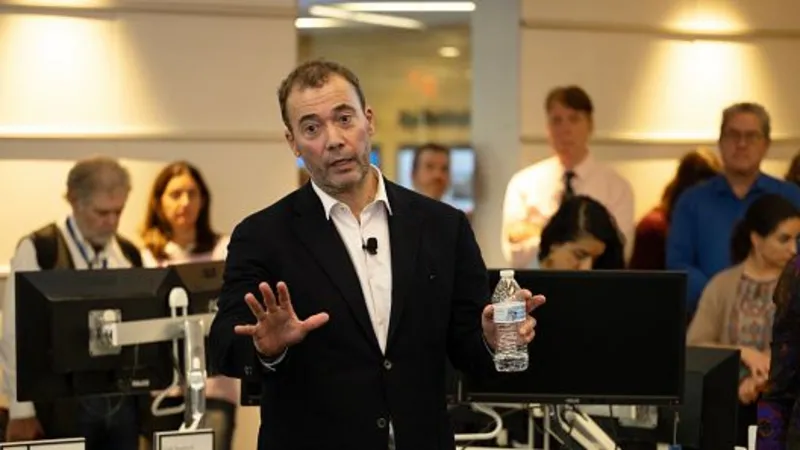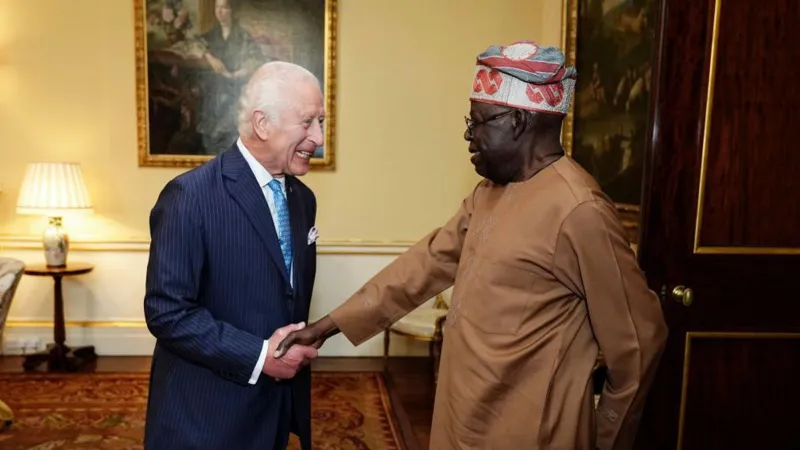Foreign News
Japan forced to destroy flagship H3 rocket in failed launch

BBC reported that Japan was forced to blow up its new rocket during a failed launch on Tuesday, setting back efforts to crack a market led by Elon Musk’s SpaceX.
Its space agency had to send a self-destruct command to the H3 rocket when its second-stage engine failed minutes after lift-off. Observers say it is a significant setback for Japan’s Aerospace Exploration Agency (Jaxa).
The government called the test failure “extremely regrettable”.
The H3 rocket is the first medium-lift rocket designed by Japan in three decades. It has been presented as a cheaper alternative to SpaceX’s Falcon 9 for launching commercial and government satellites into Earth’s orbit. On Tuesday, engineers had aimed to send the 57m (187ft) rocket into space with a monitoring satellite on board. The ALOS-3 system is capable of detecting North Korean missile launches. But Jaxa said soon after launch, engineers were forced to send a self-destruct prompt to the H3 after it experienced “reduced velocity” in the second stage of its launch.
Tuesday’s launch came after an aborted launch in February, when the rocket failed to get off the launch pad due to faulty rocket boosters.
Foreign News
Portugal elects Socialist Party’s Seguro as president in landslide

Antonio Jose Seguro of the centre-left Socialist Party has secured a landslide victory and a five-year term as Portugal’s president in a run-off vote, beating his far-right, anti-establishment rival, Andre Ventura, according to partial results.
With 95 percent of votes counted, 63-year-old Seguro has garnered 66 percent. Ventura trailed at 34 percent, still likely to secure a much stronger result than the 22.8 percent his anti-immigration Chega party achieved in last year’s general election. Ballots in large cities such as Lisbon and Porto are counted towards the end.
Two exit polls have placed Seguro in the 67-73 percent range, and Ventura at 27-33 percent.
A succession of storms in recent days has failed to deter voters, with turnout at about the same level as in the first round on January 18, even though three municipal councils in southern and central Portugal had to postpone voting by a week due to floods. The postponement affected some 37,000 registered voters, or about 0.3 percent of the total, and is unlikely to influence the overall result.
Portugal’s presidency is a largely ceremonial role, but it holds some key powers, including the ability to dissolve parliament under certain circumstances.
Ventura, 43, who had trailed Seguro in opinion polls, had argued that the government’s response to the fierce gales and floods was “useless” and called for the entire election to be postponed.
However, the authorities rejected the demand.
Seguro, during his last campaign rally on Friday, accused Ventura of “doing everything to keep the Portuguese from turning out to vote”.
Despite his loss on Sunday, Ventura, a charismatic former television sports commentator, can now boast increased support, reflecting the growing influence of the far right in Portugal and much of Europe. He is also the first extreme-right candidate to make it through to a run-off vote in Portugal.
Meanwhile, Seguro has cast himself as the candidate of a “modern and moderate” left, who can actively mediate to avert political crises and defend democratic values. He received backing from prominent conservatives after the first round amid concerns over what many see as Ventura’s populist, hardline tendencies.
But Prime Minister Luis Montenegro – whose minority centre-right government has to rely on support from either the Socialists or the far right to get legislation through parliament – declined to endorse either candidate in the second round.
While the role is largely ceremonial, the head of state has the power to dissolve parliament and call early elections.
The new president will succeed outgoing conservative Marcelo Rebelo de Sousa in early March.
[Aljazeera]
Foreign News
Washington Post chief executive steps down after mass lay-offs

The chief executive of the Washington Post is stepping down, the newspaper has announced, days after overseeing mass lay-offs.
William Lewis said it was the right time to leave, saying in a message to staff that was shared online that “difficult decisions” had been made to ensure the paper’s future.
On Wednesday the newspaper announced it was cutting a third of its workforce, dramatically scaling back its coverage of sport and international news.
The decision was condemned by many journalists and prompted criticism of the Post’s billionaire owner, Jeff Bezos. Executive editor Matt Murray said the cuts would bring “stability”.
Jeff D’Onofrio, who joined as chief financial officer of the newspaper last year, will serve as acting publisher and CEO, the Post said as it announced Lewis’s departure.
A former Dow Jones chief executive and publisher of the Wall Street Journal, Lewis was appointed to the role at the Washington Post in 2023.
He has faced criticism from subscribers and employees as he tried to reverse financial losses at the daily.
Hundreds protested in front of the paper’s headquarters in Washington DC on Thursday after the mass lay offs, which included the paper’s entire Middle East staff and its Kyiv-based Ukraine correspondent.
Marty Baron, the Post’s executive editor until 2021, said the cuts ranked “among the darkest days in the history of one of the world’s greatest news organisations”.
The departure of Lewis marks the latest upheaval for the leading US newspaper, which has seen a series of staff cuts and controversial editorial decisions in recent years.

Shortly before the 2024 US presidential election, Bezos, the founder of Amazon, broke with decades of tradition by deciding the newspaper would not endorse a presidential candidate.
The newspaper had endorsed a candidate in most presidential elections since the 1970s – all of whom had been Democrats.
The move caused widespread criticism and led to the loss of tens of thousands of subscribers.
Meanwhile, the opinion editor resigned in February last year when Bezos decided to focus the paper’s comment section on “personal liberties and free markets”.
Bezos, who acquired the newspaper in 2013, said pieces opposing those views would not be published.
[BBC]
Foreign News
King Charles to host Nigeria’s first UK state visit in 37 years

King Charles III and Queen Camilla will host Nigeria’s president in the country’s first state visit to the UK in 37 years, Buckingham Palace has announced.
Bola Tinubu and First Lady Oluremi Tinubu have accepted an invitation to be guests of the King at Windsor Castle from 18 to 19 March.
State visits are considered a form of soft-power diplomacy, using the pomp of royal hospitality to strengthen relations with important international partners.
The last Nigerian state visit to the UK took place in 1989, when military ruler Gen Ibrahim Babangida travelled to meet the late Queen Elizabeth II for a four-day trip.
Although this will be Tinubu’s first formal state visit to the UK, he has already met the King since taking office following Nigeria’s disputed election in 2023.
Tinubu and his wife were received at Buckingham Palace in September 2024 and also held a bilateral meeting with the King on the sidelines of the COP28 summit in Dubai.
But a state visit allows for ceremonial pageantry aimed at elevating the occasion and demonstrating the importance with which the UK views those visiting.
The visit comes at a time of improving diplomatic and economic links between the UK and Nigeria – with trade between the two worth more than £8bn in the year to October, government figures show. This makes the African nation one of the UK’s most important partners in the continent.
In 2024, the two countries signed a new trade and investment partnership designed to expand opportunities for business.
The agenda for the March visit has not been disclosed, nor details of the events planned for it – but state visits typically include carriage processions and a state banquet, and usually coincide with visiting leaders having political meetings.

In 2025 alone, the King presided over three state visits – those of French President Emmanuel Macron, US President Donald Trump and German President Frank-Walter Steinmeier – the first time the UK had held such a number in a single year since 1988.
The King has longstanding ties to Nigeria, a Commonwealth country, having expressed a love for Pidgin English and Nigerian Afrobeats music.
Before becoming monarch, he visited the country four times as the Prince of Wales – in 1990, 1999, 2006 and 2018. Camilla, then the Duchess of Cornwall, joined him on the latter trip.
In 2023, the King’s Trust International – formerly the Prince’s Trust – officially launched in Nigeria, announcing a project aimed at tackling youth unemployment.
[BBC]
-

 Business2 days ago
Business2 days agoZone24x7 enters 2026 with strong momentum, reinforcing its role as an enterprise AI and automation partner
-

 Business6 days ago
Business6 days agoSLIM-Kantar People’s Awards 2026 to recognise Sri Lanka’s most trusted brands and personalities
-

 Business1 day ago
Business1 day agoRemotely conducted Business Forum in Paris attracts reputed French companies
-

 Features1 day ago
Features1 day agoMy experience in turning around the Merchant Bank of Sri Lanka (MBSL) – Episode 3
-

 Business6 days ago
Business6 days agoAPI-first card issuing and processing platform for Pan Asia Bank
-

 Business2 days ago
Business2 days agoHNB recognized among Top 10 Best Employers of 2025 at the EFC National Best Employer Awards
-

 Business1 day ago
Business1 day agoFour runs, a thousand dreams: How a small-town school bowled its way into the record books
-

 Business2 days ago
Business2 days agoGREAT 2025–2030: Sri Lanka’s Green ambition meets a grid reality check













